Trail Running for the Planet
A conversation with Dakota Jones, who's focused on tackling our biggest problem
Lots of readers signed up last week to subscribe. Thanks and welcome! If you’re new to this weekly newsletter, I suggest reading this past one for context on what it’s all about and some background on me. Most weeks feature personal journaling, but occasionally, as with this installment below, I’ll spotlight a notable Colorado runner I find interesting and inspiring. Keep reading past it for some podcast recommendations and a personal note.
I started paying attention to Dakota Jones over a decade ago, in 2011, when he raced the Hardrock 100 for the first time and placed 2nd at only 21 years old. That was the year I had my rite of passage as a first-time Hardrock pacer at twice Dakota’s age, 42.
I’m here to tell you about Dakota, and what he’s doing these days, because I find his story as a pro runner and activist compelling, and I want to get the word out about his latest endeavor, which is worthy of our support.
Dakota grew up in Moab and moved to Durango when he was 15. Thanks in part to one of his high school’s teachers being the race director of Hardrock, Dakota at 17 wound up volunteering at a Hardrock aid station in 2008, and the ultrarunners he witnessed through the night blew his mind. With a background in climbing, he took to trail running and started racing—and winning—ultras as if destined for it. Career highlights include wins at uber-competitive races that draw an international field, such as the 2012 Transvulcania 83K, and course records that still stand at the San Juan Solstice 50 and Broken Arrow 54K Skyrace.
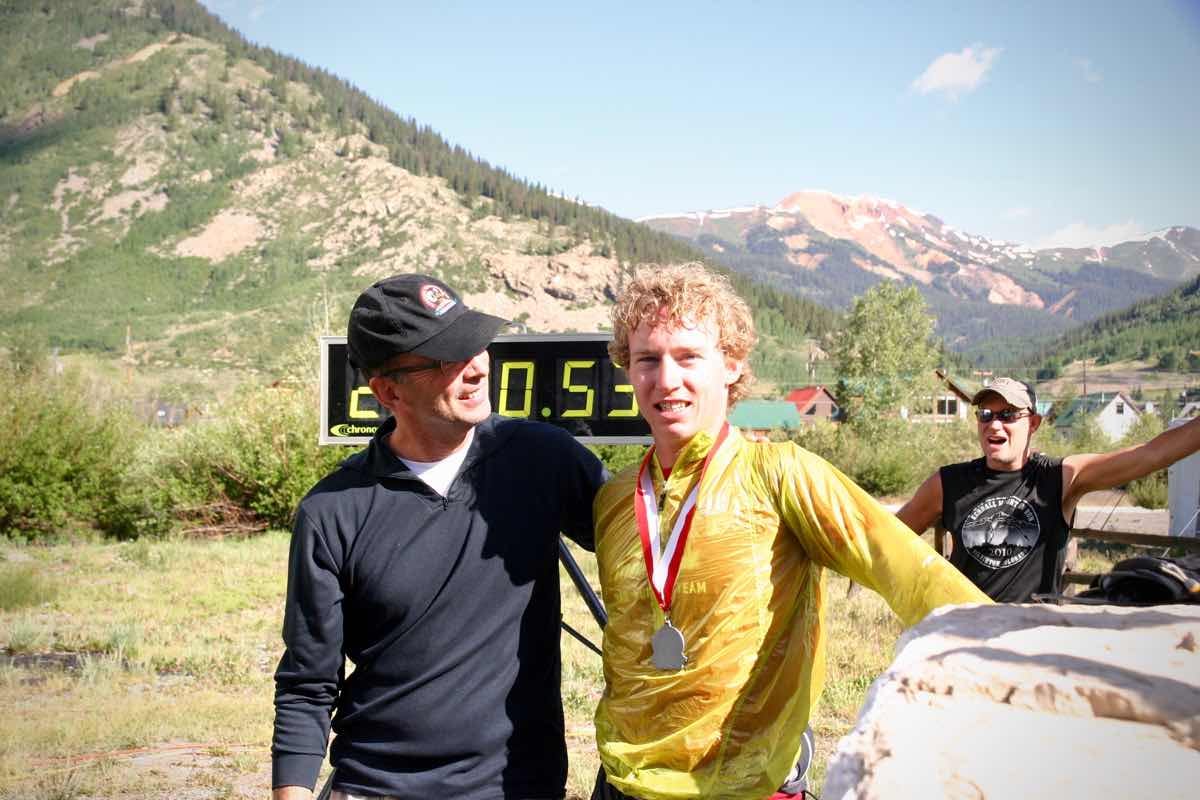
For several years he wrote wise-beyond-his-years essays and race reports for iRunFar.com and also dabbled in race directing, launching one of my favorite races, the Telluride Mountain Run, in 2013.
I first talked to Dakota in 2014, back when I co-hosted UltraRunnerPodcast, when we interviewed him for this episode. Even then, eight years ago, he started expressing the sentiment “there’s more to life than trail running” and a desire to do something with greater impact and meaning. He became outspoken as a climate activist, at one point crossing the Atlantic by cargo ship rather than flying in a plane to get to a running event, and another time riding his bike 250 miles from Silverton to the 2018 Pikes Peak Marathon rather than driving, to raise awareness and money to fight climate change. (He won the race, even with fatigue from riding a loaded bike over mountain passes in the preceding days.)
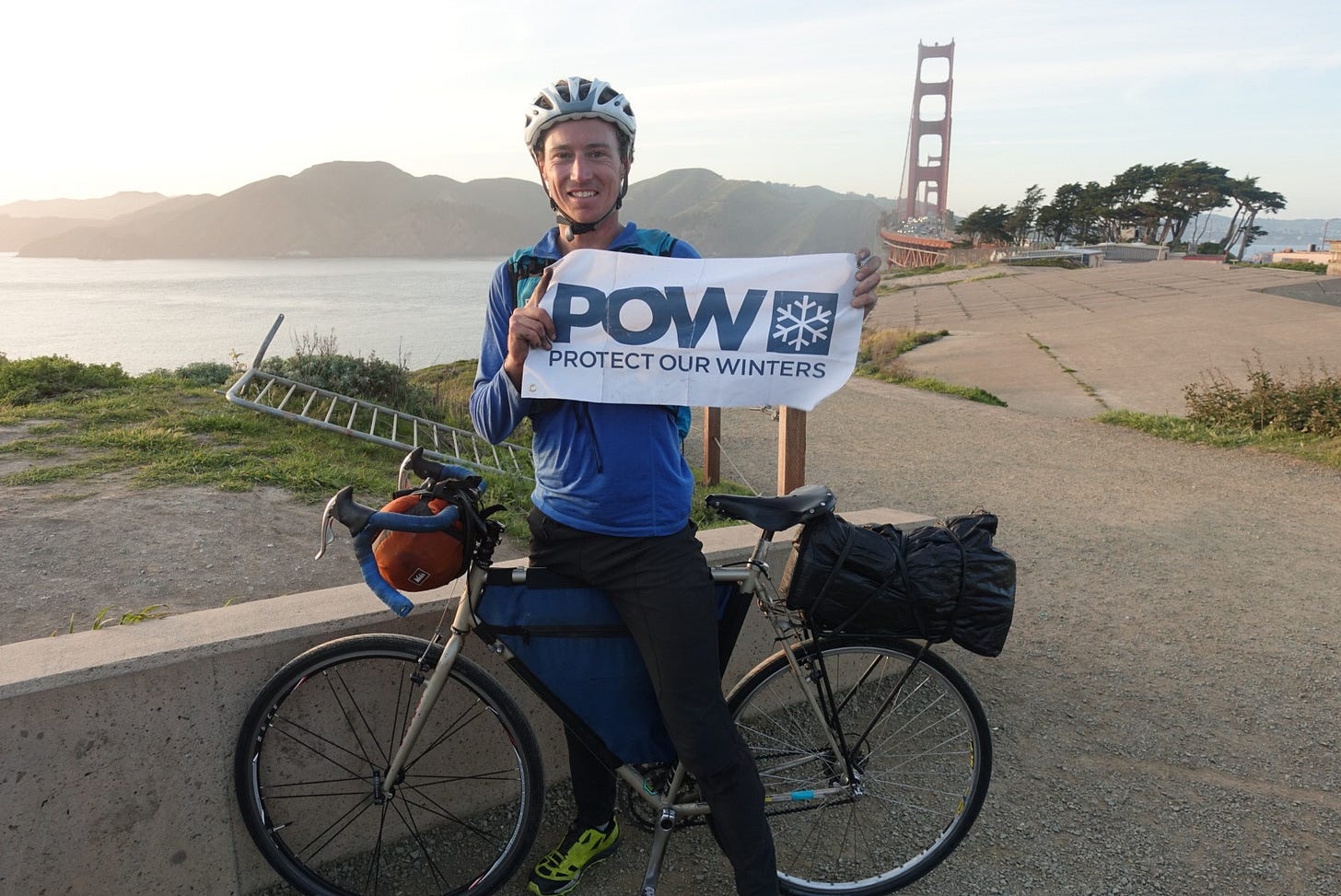
But he realized that individual action is limited in its effectiveness. To effect significant change takes getting more people to act. To that end, he launched a trail-running camp, Footprints, that does a lot more than run in the mountains. It develops leaders who work on solving environmental problems and taking climate action in their communities.
The camp started last summer, based in the San Juan Mountains near Silverton, and it’s returning this July more robust, with this as their mission:
Footprints Running catalyzes trail runners for influential climate action by directly providing the education, skills, and support they need to turn their dreams into reality. We do this through our flagship weeklong in-person camps, and additionally bolstering these experiences with a suite of supplemental resources. Our camps build leaders for climate action by both supporting and challenging campers in order to help them create effective climate action projects born from their unique skills and passions.
I won’t get into the weeds of describing all that the camp does, but I encourage you to check out their website, Instagram, and newsletter to learn more. I’ve seen a lot of running camps with a mission, and this one strikes me as different and better, in large part because it connects each camper with a mentor whose academic or professional work helps the camper’s project come to fruition. Put simply, it’s a program I believe is worth supporting for launching leaders whose community-based problem-solving work will have ripple effects to help address climate change and environmental degradation on a larger scale.
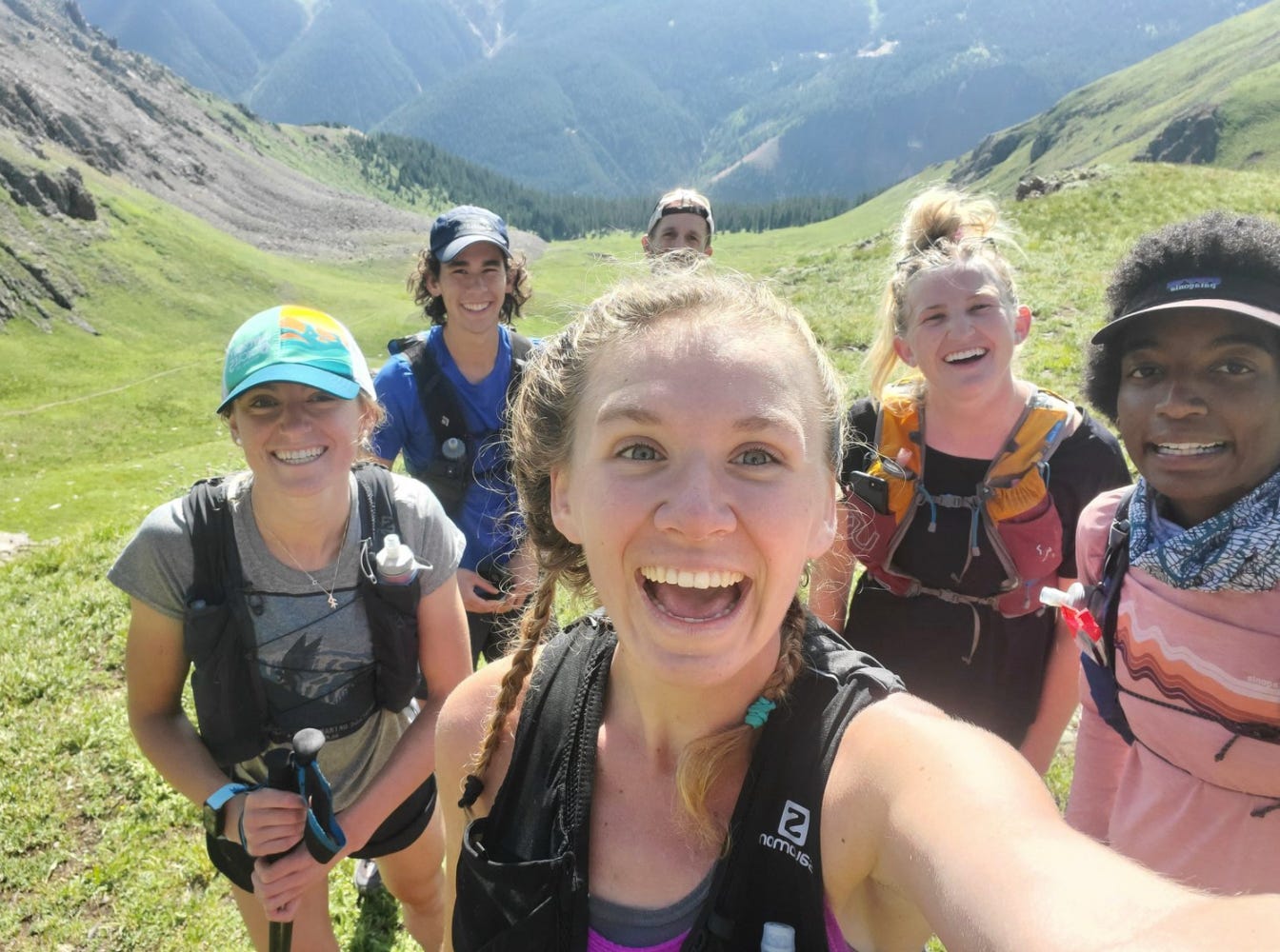
“Every camper is being trained to be leaders in their communities, so success is measured not just by how well they accomplish their task, but by how well they mobilize their community to take action with them,” Dakota told me.
This year’s camp runs from July 24 - 31 and is accepting applications through April 1. Donate here to support it, and/or spread the word to someone who might want to apply as a camper.
I talked to Dakota over Zoom last weekend from his home in Bozeman, where he moved in 2019 to re-enter college at Montana State (having dropped out as an English major earlier when he devoted himself to racing). He’s pursuing a degree in mechanical engineering so that he can understand technical problems and solutions to climate change and communicate more effectively about them.
I asked why he started this camp, given the numerous nonprofits already working on climate solutions.
“The reason I started it, rather than partnering with something else, is I didn’t see another organization doing exactly what we want to do. There are lots of running camps out there, but they aren’t environmental education camps or ones specific to climate action. I have this platform within the outdoor industry, specifically within trail running, and I have friends [in the sport] with huge platforms, so I felt I could use the context I have most effectively by working in this space. The very specific thing we do is provide climate education and action for trail runners to act within their community.”
We talked about his running and racing now, at the age of 31, having been through a decade-plus of podium highs and injury lows. He recently parted ways with his two big sponsors, Salomon Running and Clif Bar, which he says is not surprising given that his attention has been on academic studies and building Footprints camp more than racing and doing social media posts promoting their products.
But he’ll be back racing this year, first at the Gorge Waterfalls 100K in Oregon in April, then Hardrock 100 in July. It’ll be the first time he has started Hardrock since 2014, when a sprained ankle mid-race led to a DNF. Last summer, he paced course-record-winner Francois D’haene to the finish.
In spite of racing a bit less and leaving the Salomon team, “I do like competing, and I want to keep competing, and I’m definitely egotistical enough to enjoy getting first place,” Dakota said. “I would like that experience a few more times, but really what I want to do now is use the power of the outdoor community—especially the trail-running community—for good, because with climate action, we know what the problem is and we know what to do, we just need people to take the action collectively. The best way to do that is to get the people you know, in your community, to take these actions. Footprints is a way for me to take what I know best—trail running—and use it for something that protects the larger world.”
Good luck, Dakota! I’m sure we’ll cross paths again, like in these shots below.
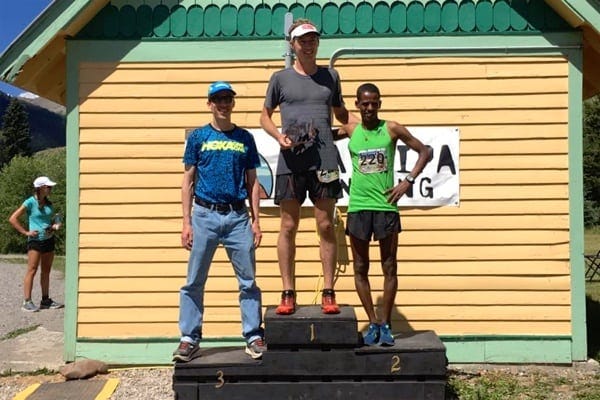
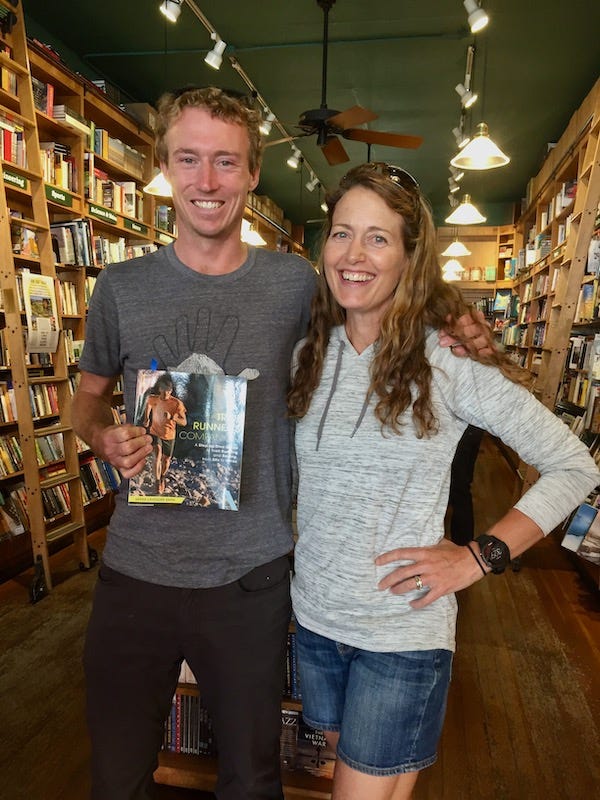
Are you, like Dakota, doing anything through your work or lifestyle to support climate solutions? Please tell us in the comment section below if so.
Podcast recommendations
A few I listened to recently on long runs and long drives:
Running related:
Billy Yang talks to Dean Karnazas. I got to know Dean a decade ago, while profiling him for Trail Runner. It’s neat to hear him again now, facing 60, and to relate to his thoughts on aging and the state of the sport.
I was interviewed for this episode of The Experience Podcast to describe the experience of training for and racing ultras. The host got me talking about how I got started running and why it stuck.
Not running related:
Snowboarder Lucas Foster on his Olympic debut in the halfpipe. Lucas is a Telluride local and friends with my son through skateboarding, so I’ve gotten to know him a little bit, and I watched his Olympic runs in the halfpipe with my heart in my throat. In this interview, he shows his humility and good values, and also talks about snowboarding’s culture and growth in a way that made me draw parallels to ultrarunning.
I like almost every This American Life show, but this two-part episode, which starts here, is particularly good for storytelling and reporting. I won’t say more, just let the story unfold.
Personal note
I’ll be in Southern California for a week to run a road marathon, visit my old hometown of Ojai, and spend time with my daughter in LA. Next week’s post likely will be more California than Colorado oriented due to this trip. Expect some kind of race report. Check out this Instagram post, if you’d like, for context on what the race means to me.
Related posts
Subscribe at the paid level if you’d like access to our monthly online meetups and bonus content. Our next Zoom will be March 20, and I’ll choose a paid subscriber at random to receive an hourlong coaching consultation.




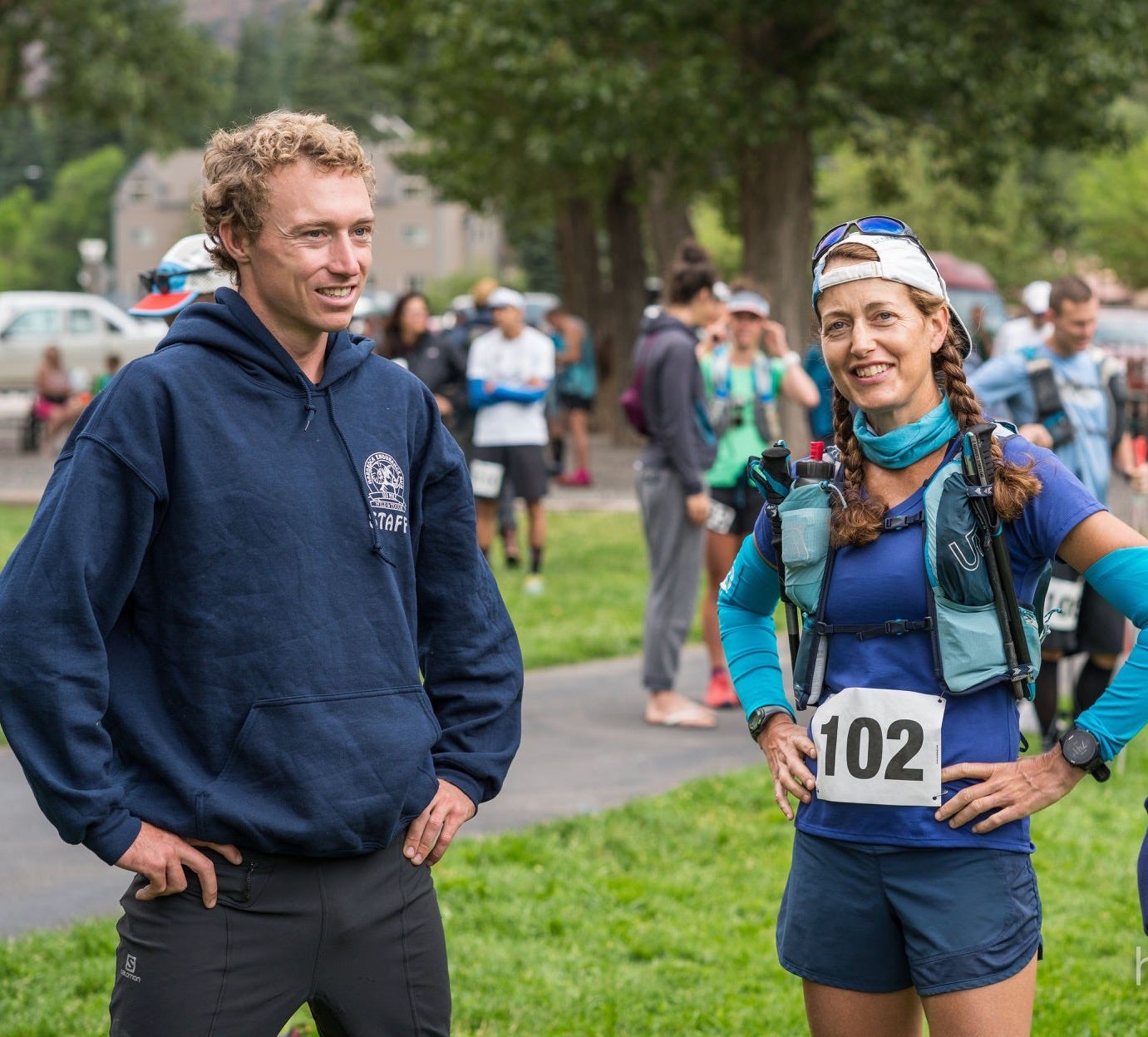




What a cool way to make an impact, thanks for sharing!
Footprints seems like a really cool camp and a great way of harnessing that platform. I'm definitely going to check out the website and read more about, thanks for sharing :)